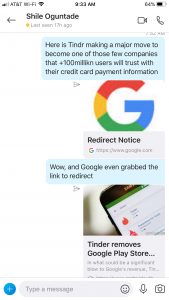Build Back Different

We’ve mentioned Clubhouse before and attention must be paid: it proved to be a game-changer – big time – the likes of which we haven’t seen in a while. Clubhouse has taken social media into a different direction. While Twitter and even Facebook have been something of town squares, CH is not that: it’s the corner pub or sort of unconference or coffee klatch, where people can wander in and out of ‘rooms,’ at will, and participate, or simply listen and learn.
Although, CH members, take note: Clubhouse Users’ Raw Audio May Be Exposed to Chinese Partner.
So, what’s next? Well, the Twitter and Facebook knock offs, of course. Considering that both platforms are losing users and revenue (Twitter reports $1.14B net loss for 2020 – and that was before CH hit the zeitgeist in a significant way, and Facebook has been hemorrhaging users in its most valuable markets for some time now, what to speak of the face that Apple Privacy Change May Cost Facebook, Google $25 Billion Over Next 12 Months), they still believe that they will forever hold sway as the Masters of the Universe, so why innovate when you can appropriate?








